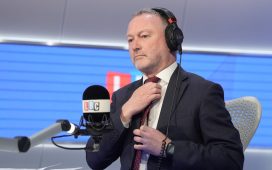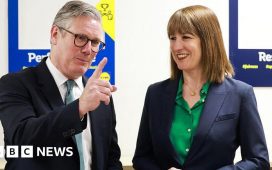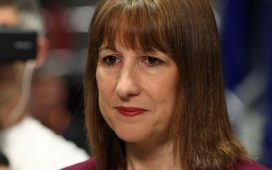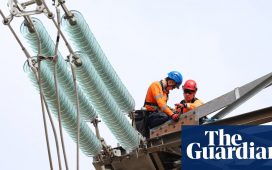Unlock the Editor’s Digest for free
Roula Khalaf, Editor of the FT, selects her favourite stories in this weekly newsletter.
The number of HM Revenue & Customs investigations into serious tax fraud and avoidance has fallen to a six-year low, figures uncovered by the Financial Times have revealed.
Known in tax circles as Code of Practice 8 and 9 cases, the number of investigations fell from 1,091 in 2022-23 to just 480 in 2023-24.
Cop9 investigations, which involve the most serious cases of tax fraud such as that of Bernie Ecclestone, fell to just 268 in 2023-24 — down from 669 in 2018-19.
Several tax experts blamed staff turnover and a lack of resources within HMRC. The Offshore Corporate and Wealthy unit of the Fraud Investigation Service — which conducts most Cop9 investigations — currently employs 360 staff, down from 400 just before the pandemic, out of a 67,500 total at HMRC.
But HMRC hit back at these claims, saying its fraud investigation teams were focusing their work on the highest-impact and highest-yielding cases.
Andrew Park, tax investigations partner at accounting firm Price Bailey, said the staff working on fraud investigations used to be “the pick of HMRC”, but due to staff turnover many new staff “simply do not know what they are doing”.
The number of investigations opened rose sharply after the pandemic. Park argued that this “surge” had “swamped” staff and prevented further cases from being opened.
“They’ve simply not got the resources to open as many new investigations,” he said.
Dan Neidle, founder of the think-tank Tax Policy Associates, added that the figures reflected a lack of experienced staff and poor training for new hires.
He highlighted the case of Paul Baxendale Walker, a former lawyer and tax adviser previously involved in promoting tax avoidance schemes, on whom HMRC had applied to impose a £14mn penalty for not complying with a request to provide information. However, the tax authority made procedural mistakes and its application was struck out.
Neidle added that HMRC staff were being poached by the private sector. “An experienced HMRC officer is an attractive private sector hire, doing basically exactly the same job but for perhaps twice the salary. Very few civil servants are as marketable,” he said.
In the Budget, chancellor Rachel Reeves announced that the tax authority would hire an additional 5,000 compliance staff in an effort to crack down on fraud — with the first 200 starting training in November.
However, a senior Fraud Investigation Service official recently told a room of tax experts that they had not yet been consulted on how many extra staff their team would be allocated as a result of the announcements.
Despite the fall in the number of investigations opened, a record £1.1bn was recouped by the tax authority in 2023-24. But HMRC acknowledged that the jump was partly due to the “particularly large” Ecclestone payment of £652.6mn, which had distorted the figures.
An HMRC spokesperson said: “In recent years we have deliberately focused our investigations towards the highest-harm and highest-value fraud, which means the number of these inquiries [Cop9 and Cop8] will change from year to year based on changing risks.
“The vast majority pay the tax that’s due and we use a range of civil and criminal powers to tackle those committing serious fraud. Last year this compliance work protected £34bn of tax that would otherwise have been unpaid.”








